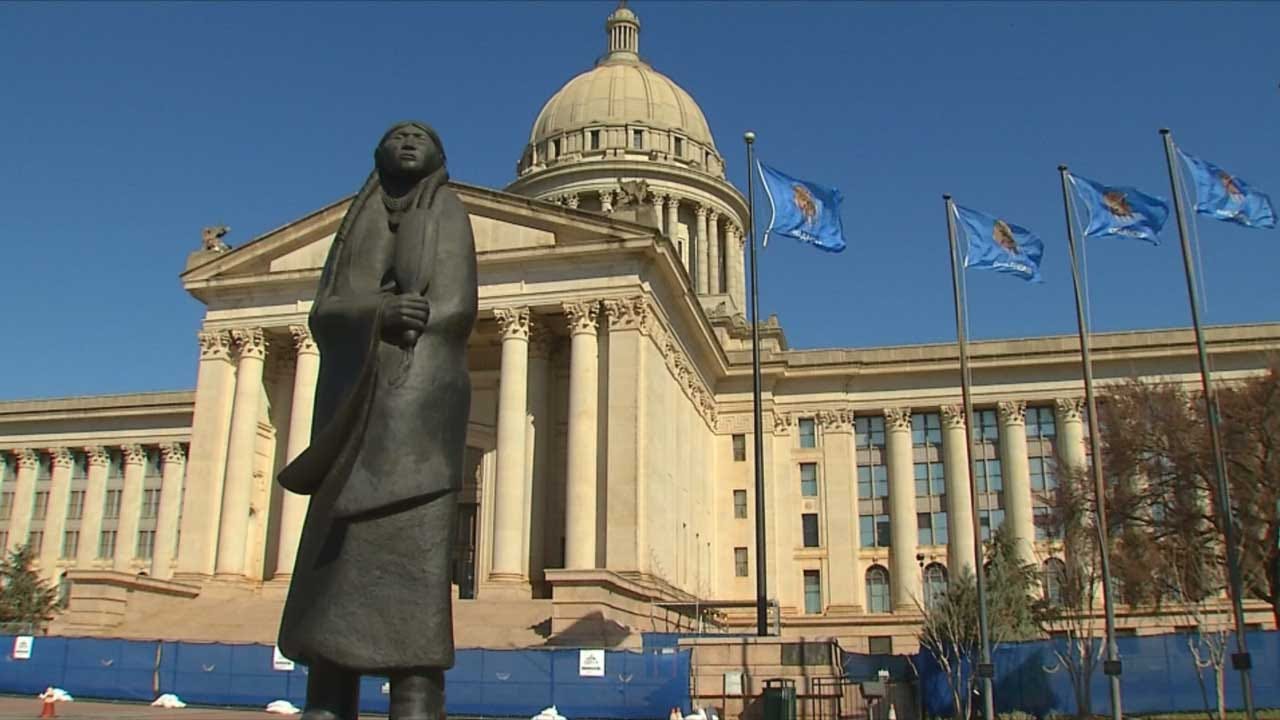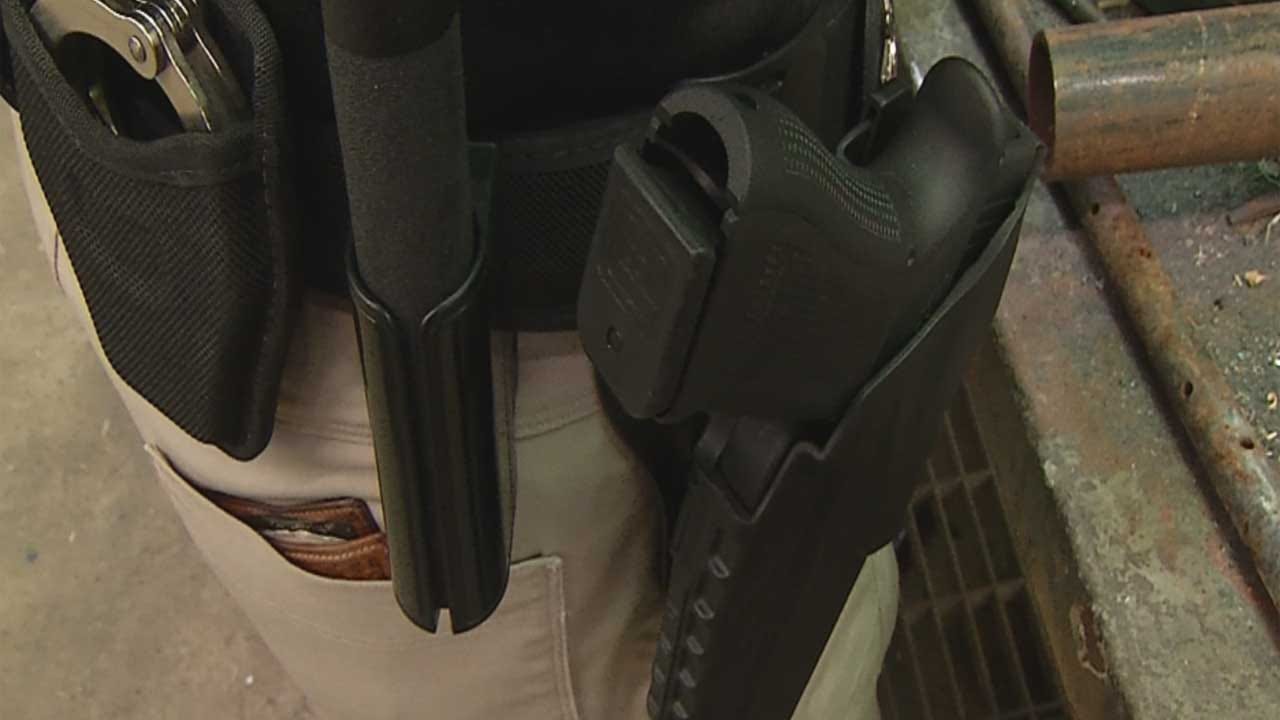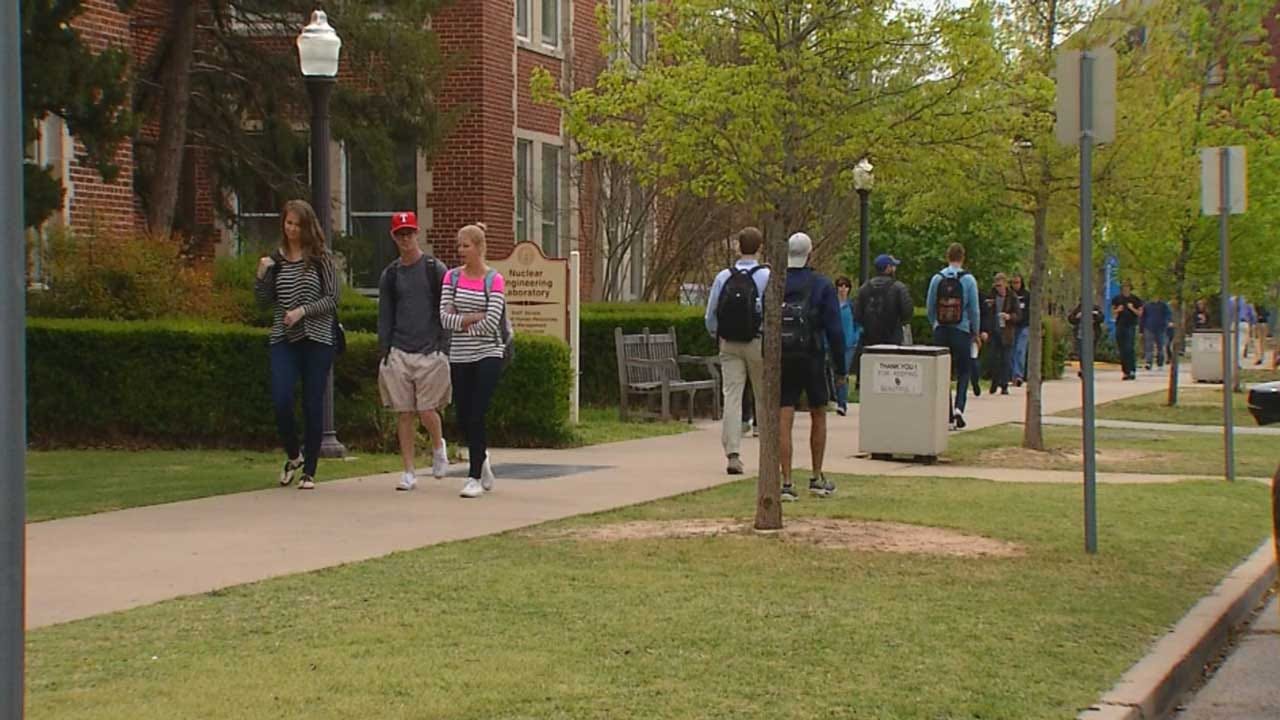6 Investigates: Emergency Teacher Certifications Increasing In Oklahoma
<p>The state's increasing reliance on emergency certified teachers to fill classrooms raises the questions of who these people are and what qualifications do they have?</p>Wednesday, December 9th 2015, 11:12 pm
A good indicator of the seriousness of the state's teacher shortage is the fact that, less than halfway through the current school year, the state has already approved almost twice as many emergency teaching certifications as were approved all of last year.
The state's increasing reliance on emergency certified teachers to fill classrooms raises the questions of who these people are and what qualifications do they have?
At the Oklahoma City Public School District's U.S Grant High School, 28-year-old Mickey Dollens is in his second year of teaching English with an emergency certification. He says he's found his calling, even if it was a winding path that took him there.
Dollens, from Bartlesville, played football at SMU, enjoyed a stint on the Team USA bobsled team, authored a book on college football recruiting, and was working in the oil and gas industry, when he decided to switch gears.
"Although it was very lucrative," Dollens explained, in a recent interview, "I didn't feel like I was giving back, like I was when I was on [Team USA]."
Dollens says he knew there was a need for teachers. With the school district's help, he got emergency certified and jumped right in.
"It was a natural fit," Dollens stated. "Working at Grant has given me more experience than anything I've taken in a college setting."
But that's just what worries education experts like Dan Vincent, an assistant professor of elementary education at UCO's College of Education and Professional Studies. Vincent feels that many emergency certified teachers are, essentially, learning to teach 'on the job.'
"I'm not saying that these people that are going into this are bad teachers," Vincent clarified, "it's just--there's a special knowledge and skill base that needs to be developed."
Under normal circumstances, candidates for teacher certification develop those skills through rigorous coursework at one of Oklahoma's 26 teacher education programs and through extended student teaching -- up to 12 weeks -- required by accredited education programs.
"You have to learn how to meet the needs of the students," said Alicia Priest, President of the Oklahoma Education Association. "Teaching is not just about a subject -- you have to reach, teach and inspire those kids."
Historically, it's not been unusual for districts, on occasion, to rely on an emergency certification in order to fill an open math or science teaching position. But as the teacher shortage has worsened in recent years, the number of emergency certifications has taken off.
Four years ago, the state Board of Education approved 32 emergency certifications for the entire 2011-2012 school year. In the 2012-2013 school year, the number of emergency certifications jumped to 98; there were 189 in 2013-2014 and 506 last year. Through the first five months of the 2015-2016 school year (this includes 28 certification approved on the date of the publication of this story), the board has approved 948 emergency certifications.
See entire list of certifications approved by the State Board of Education
"It's worrisome." said Priest, "that we have this Band-Aid fix."
Experts blame state leaders for not taking the problem seriously enough, and thus leaving districts to choose between huge class sizes or teachers without proper training.
"It's the lesser of two evils," said UCO's Vincent. "I mean, you set up a system in our state where we don't value teachers and we don't invest in our kids."
Not everyone agrees.
"I wouldn't call emergency certification an evil," responded Jeff Smith, executive director of teacher certification for the state.
Smith admits emergency certification is not ideal, but believes it is better than having to drop classes.
"How much further--how many more classes can you cut?" asked Smith.
Candidates for emergency certification must have a bachelor's degree, but the degree does not have to be in the same subject that they are planning to teach, and a review of the records for this year confirms it is often the case that they do not match.
"So we have people who studied hotel management or they have criminal justice degrees," said Vincent, "and they're going and being certified to teach second graders."
But state officials defend emergency certifications, pointing out that these districts must show that have made an effort to hire a certified teacher; they say the districts have run out of options.
"We have to trust the districts at some level that the requests they're submitting to us are legitimate," said Jeff Smith, "and in the fact that they feel this person has the capability to meet the needs of the children."
Mickey Dollens, the emergency English teacher (whose degree is in English), feels he's meeting his kids' needs as well as any traditional teacher.
"I come in and I'm passionate," said Dollens, "and they can sense that."
Like many emergency certified teachers, Dollens is working on getting his full certification. In the meantime, he says he'll continue to do what comes naturally to him -- inspire those around him.
More Like This
December 9th, 2015
November 22nd, 2016
June 9th, 2016
Top Headlines
April 24th, 2024
April 24th, 2024
April 24th, 2024
April 24th, 2024










